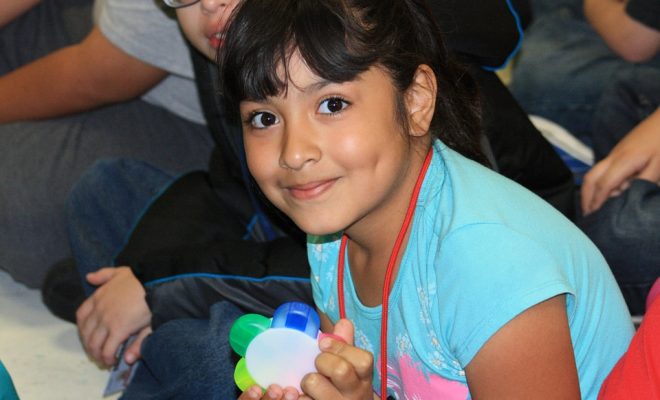Should writing for the public count toward tenure?

Amy Schalet, University of Massachusetts Amherst
Many pressing issues have been calling for attention these days – the unprecedented increase in mortality rates among white Americans, the Black Lives Matter movement and the upending of the Republican Party.
At the root of many of these issues are complex sociological reasons. For example, there is good reason to believe that the rising mortality among white Americans is related to the declining economic fortunes of white working-class men over the past four decades.
But how is the general public to understand these issues? And how are they to know how best to respond to such concerns?
Surely, hundreds, if not thousands, of articles and university press books could provide insights. The problem is this bounty of expert knowledge can hardly be accessed by the general public, politicians or practitioners.
I am the director of the Public Engagement Project at the University of Massachusetts Amherst. I lead a peer mentoring group that provides training to scholars on how to be public intellectuals, work with practitioners and policymakers, and influence social change.
But the challenge is that such public engagement does not count within the academy. Faculty evaluations rarely consider articles written for the popular media.
Now, in a move of far-reaching significance, the American Sociological Association aims to start a conversation among university scholars and administrators about how to include “public communication” in the assessment of a scholar’s contributions.
On August 20 – the first day of its annual meeting in Seattle that will draw 6,000 sociologists from around the country – the ASA plans to release a seminal report, titled “What Counts? Evaluating Public Communication in Tenure and Promotion.”
I see this report as critical. When we include public communication – not just peer-reviewed scholarly communication – in evaluating faculty, we encourage them to share their knowledge with the members of society who could most benefit from it.
The problem
It was late in my Ph.D. training at the University of California Berkeley that it dawned on me how the knowledge produced in my discipline was not getting out of the proverbial ivory tower.
During a heated argument about the American economy, my brother took issue with my assertion that for many Americans real wages had stagnated since the late 1970s.

Is academic knowledge stuck inside the ivory tower? Cushing Memorial Library and Archives, Texas A&M, CC BY-NC-ND
The year was 2000 – before the 2008 recession, before Occupy Wall Street, before Bernie Sanders. The changes in the economy and the social policies that had for decades been driving the stagnation at the bottom of the income distribution and growth at the top were well-established within sociology.
But it was not so well-known outside of the discipline. The reaction of my well-educated, well-read and normally agreeable brother attested to that.
It was at that moment that I realized that the fruits of my profession – all those painstakingly researched facts and carefully considered analyses – were not reaching even reasonably well-informed people.
Since cofounding the Public Engagement Project in 2007, I have seen this problem over and over again. Crucial research-based information on, for instance, housing discrimination, health impacts of chemicals in our everyday environment or the causes and consequences of health inequities, remains largely unknown to the outside public and politicians. This is information that could inform and have an impact on policy.
So, how did we end up in this situation?
There are many forces at play. An important one is that research universities only reward peer-reviewed research. They do not teach scholars – or count the time it takes – to communicate with anyone else.
Where are the academics?
This disconnect between research – often publicly funded – and the society that stands to benefit from it has not gone unnoticed.
For example, in 2014, New York Times columnist Nicholas Kristof called on faculty to make their voices heard. In his column “Professors, We Need You!”, Kristoff wrote,
“Some of the smartest thinkers on problems at home and around the world are university professors, but most of them just don’t matter in today’s great debates.”

Where are the academics? Steve Mullis, CC BY-NC-SA
Scholars such as Steven Pinker and Jill Lepore have argued that faculty must learn to seize, rather than shy away from, the power of story and idiom. Such creative tools need not diminish heft, as professors often fear. Instead, they can help communicate complexity.
In fact, many initiatives inside and outside the academy are now seeking to address the absence of professors in public dialogue and debate.
The National Science Foundation requires grantees to spell out the “broader impacts” of projects. And private foundations are supporting new channels of communication between academics and decision-makers. Other initiatives, all over the country, are aiming to shore up the public communication capacities of scholars, including this very publication, The Conversation.
A challenge though has been our disciplinary training which emphasizes “methodological and theoretical” contributions. That makes it hard for us to explain the broad significance of our work to noninitiates.
Academics can become mired in academic jargon, or just fall silent.
But like any new skill, mastering writing for the public requires community, commitment, courage, and a lot of practice.
The Public Engagement Project at the University of Massachusetts offers an example of crucial peer support. A group of seven to nine faculty, drawn from across the disciplines, engage each year in peer mentoring of colleagues during a semester-long Public Engagement Project Faculty Fellowship.
Why it matters
The process of learning a new language can be humbling. But the benefits are tangible.
For example, one Fellow, who prepared a policy memo to share with lawmakers, was asked to provide scientific advice to her national senator. Her public outreach also resulted in her appointment to the U.S. EPA’s Science Advisory Board.
In another example, a general interest article written by a chemistry professor reached more readers than the scholar had in all the preceding decades of work.
In my own work on adolescent sexuality, culture and families, I have found that my articles for general audiences resulted in much greater visibility for my academic publications.
Furthermore, as a result of writing for practitioners and lay readers, new ideas emerged for future research projects, and other opportunities came up for public engagement.
What was most rewarding was that I found a way to reach parents with information that could improve their relationships with their teenage children.
A significant benefit that I have seen in my work with the Public Engagement Project Fellows is that it helps scholars clarify their thinking. In a recent article, researchers Jonathan Wai and David Miller report similarly:
“not only did the process [of writing for the public] improve the quality of our writing, but it also brought more clarity to the way we were thinking about scientific problems.”
In her book, “The Public Professor: How to Use Your Research to Change the World,”, economist and publicly engaged scholar Lee Badgett details numerous stories of academics who are able to “speak truth to power” through public communication.
But does it count?
We know faculty public engagement matters for society. From my experience, I also also know that it matters for individual faculty. They report a greater sense of purpose, fulfillment, a better mastery of their topic area and new chances for future funding.
But does the public engagement work they do – the hours they spent crafting an op-ed or a policy brief, and cultivating relationships with policymakers, practitioners or the news office – matter in the eyes of those tasked with assessing their productivity and their value?
The answer all too often is no.
That is where, the American Sociological Association’s August 20 report, “What Counts?,“ comes in. The report draws attention to the place where the rubber meets the road in any academic’s career – namely, the process of being granted tenure. The report proposes that universities consider how to include the work of faculty who engage in public communication in tenure and promotion cases and in overall faculty assessment.
Tenure is the make-or-break of academic life – a process through which a faculty member either gets promoted or loses a job. What counts in this process are publications in peer-reviewed journals or university press books.
Public communication is seen, at best, as a nice, but unnecessary bonus.
Research matters
“What Counts” does not tell individual sociologists, members of tenure and promotion committees, or administrators that faculty should engage in public communication.
What it does is recognize that many faculty do already engage in public communications, and that such work has much to contribute to the world and the discipline.

Whose voice counts is important as well. Banalities, CC BY
It urges leaders in the discipline to start a conversation about counting this work in tenure and promotion. It outlines three criteria for evaluation: The first criterion is the content of the writing. The second is quality and rigor. And the third is public impact.
Finally, the ASA report notes that women and minority scholars are less likely to gain access to high-status news outlets and more likely to be attacked when they take public positions on contentious issues.
So, “What Counts?” also asks the question of “Who Counts?”
For when we return to such pressing issues, like the rise of Donald Trump and the Black Lives Matter movement, what stands out is the question of whose voice counts and who feels not heard. This question pertains not only to people in the streets and at the rallies, but also to experts.
Research matters. It can help us understand and act in the world – in a more informed way.
![]()
Amy Schalet, Associate Professor of Sociology, Director of the Public Engagement Project, University of Massachusetts Amherst
This article was originally published on The Conversation. Read the original article.




